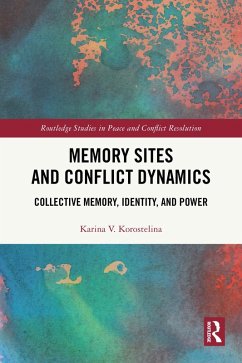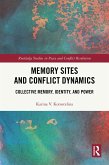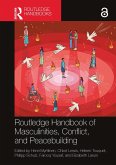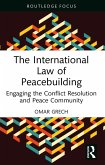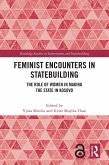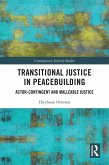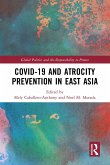Through an analysis of the dynamics of identity-based conflicts, the book shows how memory sites become intertwined with the transformations of social boundaries and perceptions of relative deprivation, outgroup threat, collective axiology, and power relations. It posits that these two sets of factors - the functioning of collective memory as an ideological construct and the transformation of conflictual social relations - define the role and influence of memory sites in the dynamics of identity-based conflicts. Through multiple case studies representing different dynamics - dealing with fascist and communist pasts in Italy, post-colonial relations between South Korea and Japan, ethnic conflict in Kosovo, and tribal acknowledgment for Native American Nations - the book discusses how memory sites contribute to competition over ownership, fights for legitimacy, claims of entitlements, and negative portrayals of the Other. In doing so, it outlines four major functions of memory sites - enhancing, ascribing, interacting, and legitimizing - and shows how they contribute to and shape the structure and dynamics of conflict. Concentrating on the linkages between memory sites, violence prevention, and reconciliation, the book proposes solutions for promoting peace, including the focus on plurality of heritage, recognition of fluidity of meanings, and resistance to singular interpretations and manipulations by identity entrepreneurs.
This volume will be of much interest to students of peace and conflict studies, memory studies, and International Relations in general.
Dieser Download kann aus rechtlichen Gründen nur mit Rechnungsadresse in A, B, BG, CY, CZ, D, DK, EW, E, FIN, F, GR, HR, H, IRL, I, LT, L, LR, M, NL, PL, P, R, S, SLO, SK ausgeliefert werden.
Martin Leiner, Director of the Jena Center for Reconciliation Studies and Chair in Systematic Theology/Ethics at the Faculty of Theology at Friedrich-Schiller-University, Jena, Germany
"This is an extraordinary book. It rightfully upends many of our existing preconceptions about what helps or hinders post-conflict reconciliation. It will be an invaluable resource for policy makers and practitioners searching for more effective processes to aid intergroup conflict resolution and the effective transformation of group relations that can assist sustainable peace."
Mari Fitzduff, Professor Emerita, Heller School, Brandeis University, USA
"This book offers a sweeping evaluation of the role of memory sites in contemporary history. It combines a distinctive theoretical assessment of the nature, functions and diverse potential of these sites, along with four original case studies, ranging from Europe to Korea to Native Americans. Above all, the book shows how a better understanding of memory sites can improve their potential in reducing rather than exacerbating ongoing conflict."
Peter N. Stearns, Distinguished University Professor of History, George Mason University, USA

